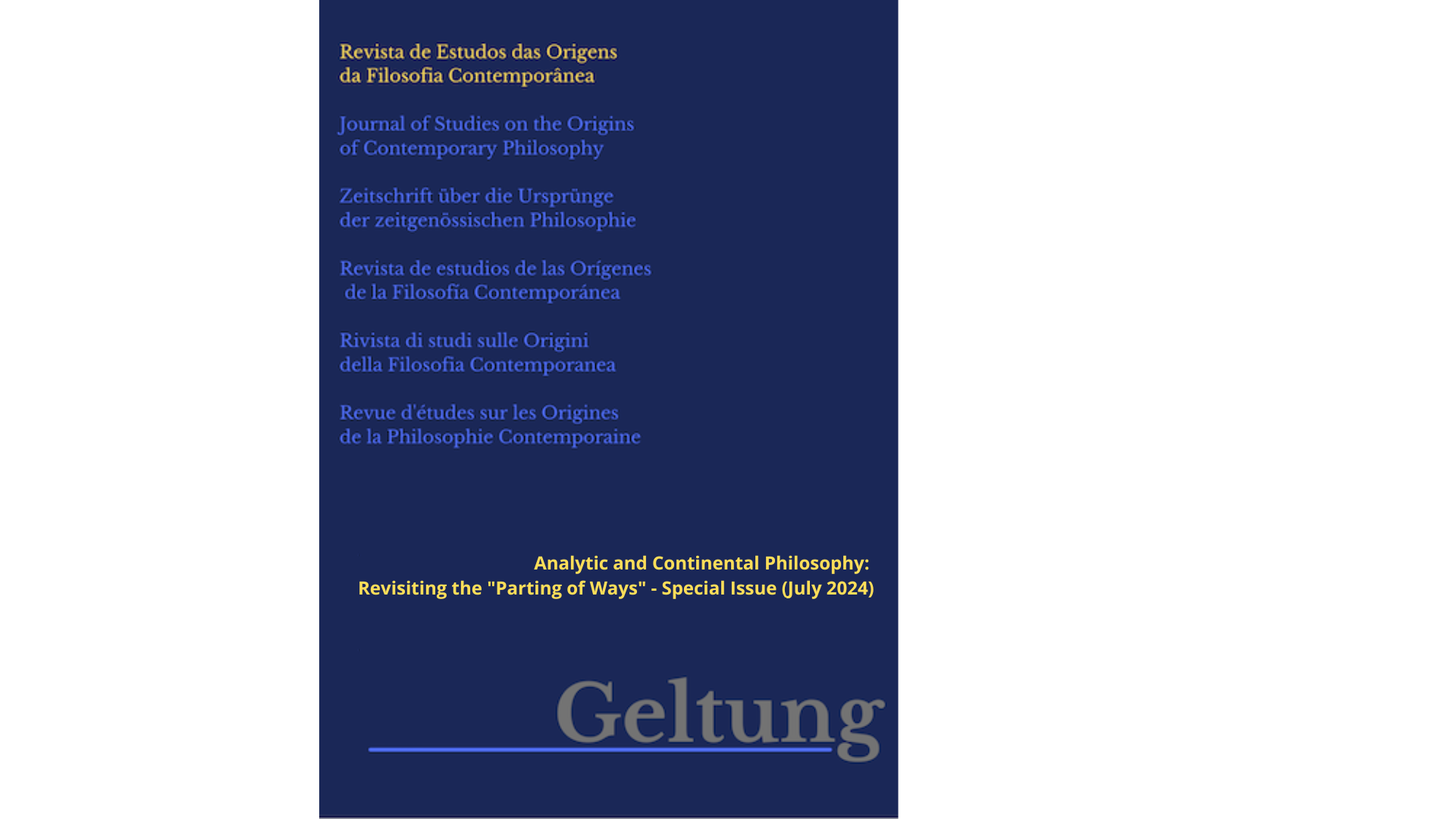Philosophy versus the continental/analytic distinction
DOI:
https://doi.org/10.23925/2764-0892.2024.v2.n2.e66317Keywords:
Analytic/Continental, Professionalization, University, History of PhilosophyAbstract
The distinction between analytic and continental philosophy is not a philosophical distinction. It is a sociological one, incorporating political and psychological dimensions. I shall argue that this distinction is a symptom of, most relevantly, professionalization, and that professionalization excludes philosophy. As a result, the only philosophically meaningful consequence that the analytic/continental distinction has is to alert us by conceptual contrast to what it is that we should concern ourselves with instead. This alternative focus is the a-professional contexts and features of actual philosophy. The analytic/continental distinction usefully points us to these as that to which the specific structure and disciplinary effects of this distinction are entirely irrelevant.
References
COLLINS, Randall. The Sociology of Philosophies: A Global Theory of Intellectual Change. Cambridge, MA: Harvard University Press, 1998.
CUSSET, François. French Theory: How Foucault, Derrida, Deleuze, & Co. Transformed the Intellectual Life of the United States. Translated by Jeff Fort with Josephine Berganza and Marlon Jones. Minneapolis, MN: University of Minnesota Press, 2008.
DERRIDA, Jacques. Points . . .: Interviews, 1974-1994. Edited by Elisabeth Weber. Translated by Peggy Kamuf et al. Stanford, CA: Stanford University Press, 1995.
EMERSON, Ralph Waldo. Intellect. The Essential Writings of Ralph Waldo Emerson. Edited by Brooks Atkinson. New York: The Modern Library, 2000.
EMERSON, Ralph Waldo. Self-Reliance. The Best of Ralph Waldo Emerson: Essays, Poems, Addresses. Edited by Gordon S. Haight. New York: Walter J. Black, 1941.
GILDEA, Niall. Jacques Derrida’s Cambridge Affair: Deconstruction, Philosophy and Institutionality. New York: Rowman & Littlefield, 2020.
GOETHE, Johann Wolfgang von. Maxims and Reflections. Translated by Elizabeth Stopp. Edited by Peter Hutchinson. New York: Penguin, 1998.
GRAFF, Gerald. Professing Literature: An Institutional History. Chicago, IL: The University of Chicago Press, 2007.
HAMLYN, D. W. Being a Philosopher: The History of a Practice. New York: Routledge, 1992.
HANNA, Robert. The Fate of Analysis. New York: In the Weeds, 2021.
KANT, Immanuel. Critique of Pure Reason. Translated by Norman Kemp Smith. New York: St Martin’s Press, 1929.
LUCAS, Christopher J. American Higher Education: A History. New York: St. Martin’s Griffin, 1994.
MARÍAS, Julián. Philosophy as Dramatic Theory. Translated by James Parsons. University Park, PA: The Pennsylvania State University Press, 1971.
MENAND, Louis. The Marketplace of Ideas: Reform and Resistance in the American University. New York: W. W. Norton and Company, 2010.
OGILVY, James (Ed.). Revisioning Philosophy. Albany, NY: State University of New York Press, 1992.
ORTEGA y Gasset, José. Some Lessons in Metaphysics. Translated by Mildred Adams. New York: W. W. Norton & Company, 1969.
PRESTON, Aaron. Analytic Philosophy: The History of an Illusion. London: Continuum, 2007.
RAPAPORT, Herman. The Theory Mess: Deconstruction in Eclipse. New York: Columbia University Press, 2001.
READINGS, Bill. The University in Ruins. Cambridge, MA: Harvard University Press, 1996.
RYLE, Gilbert. Dilemmas. New York: Cambridge University Press, 1954.
VANHOUTTE, Kristof K. P. There Is No Such Thing as ‘Continental’ Philosophy. Paris: PICT Books, 2023.
WORTHAM, Simon Morgan. Counter-Institutions: Jacques Derrida and the Question of the University. New York: Fordham University Press, 2006.
Downloads
Published
How to Cite
Issue
Section
License
Copyright (c) 2024 Geltung - Journal of Studies on the Origins of Contemporary Philosophy

This work is licensed under a Creative Commons Attribution 4.0 International License.

This work is licensed under a Creative Commons Attribution 4.0 International License.






